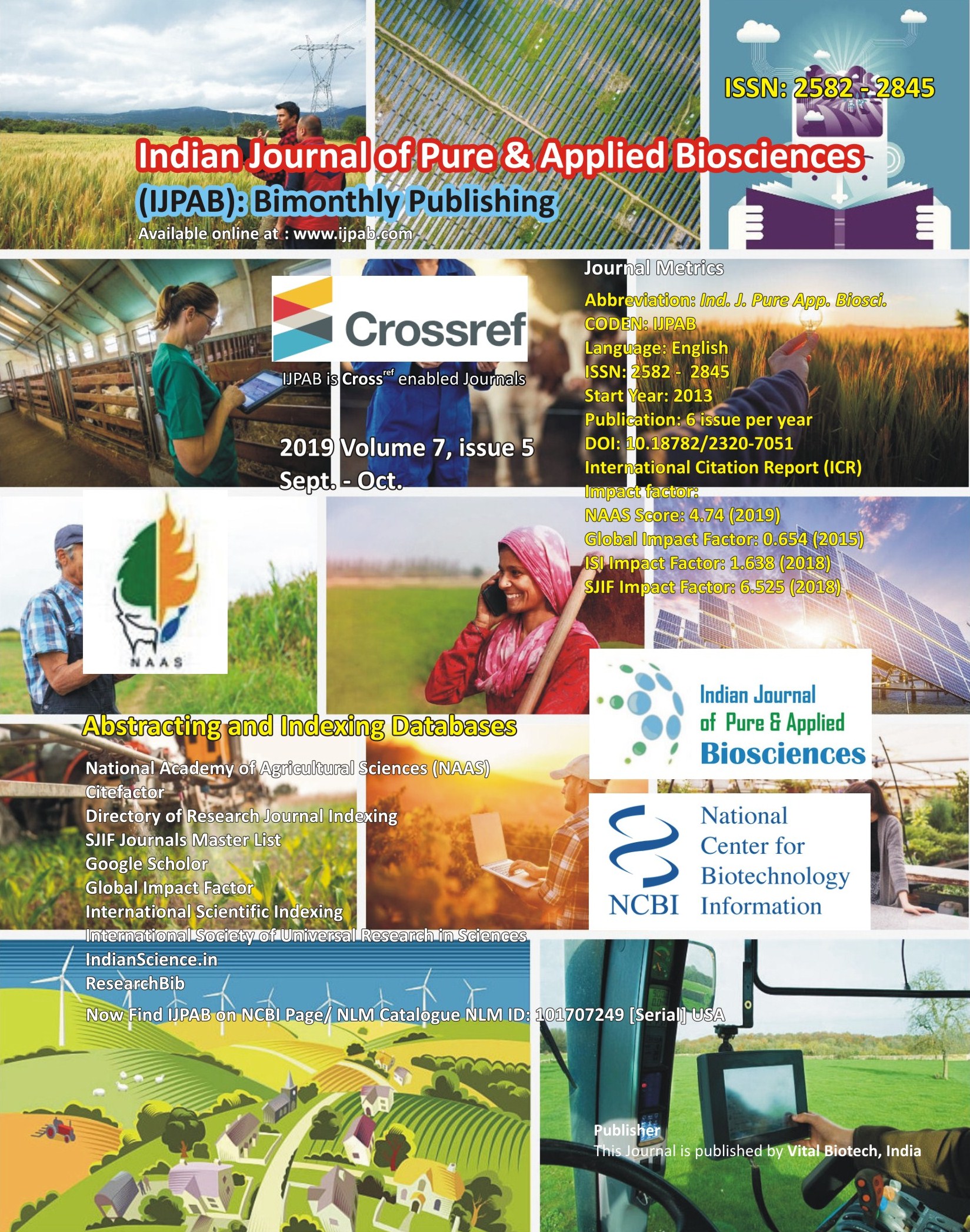
-
No. 772, Basant Vihar, Kota
Rajasthan-324009 India
-
Call Us On
+91 9784677044
-
Mail Us @
editor@ijpab.com
Indian Journal of Pure & Applied Biosciences (IJPAB)
Year : 2019, Volume : 7, Issue : 5
First page : (25) Last page : (29)
Article doi: : http://dx.doi.org/10.18782/2320-7051.7775
Evaluation of Antiangiogenic Activity of Nigella sativa Extract by Sponge Implantation Method in Mouse Model
S. C. Gosavi1, Vikas. V. Karande2*, B. C. Ghumare3, C. S. Mote4, P. P. Mhase5 and P.V. Mehere6
1PG Scholar, Department of Veterinary Pharmacology and Toxicology,
2*,3Assistant Professor, Department of Pharmacology and Toxicology,
4Assistant Professor, Department of Pathology,
5Assistant Professor, Department of Microbiology,
6Assistant Professor, Department of Physiology,
Krantisinh Nana Patil College of Veterinary Science, Shirwal Dist- Satara,
Bombay Veterinary College, Parel, Mumbai -400012, India
*Corresponding Author E-mail: drvikas111081@gmail.com
Received: 3.09.2019 | Revised: 8.10.2019 | Accepted: 14.10.2019
ABSTRACT
Angiogenesis has crucial role in malignant tumor growth. Nigella sativa has been used in traditional medicine to treat many ailments like immunomodulation, anti-inflammatory analgesic etc. The present study was undertaken in order to evaluate the effect of ethanolic extract of N. sativa on angiogenesis in mouse model. The antiangiogenic potential was investigated by sponge implantation method, wherein significant inhibition of blood vessel formation, haemoglobin concentration and VEGF concentration were recorded. Animals (18) were divided in three groups where group I was kept as untreated, group II treated with SU5416 and group III was treated with ethanolic extract of N. sativa. The results were compared with positive control SU5416 and untreated group. By using Cyanmethemoglobin method the mean (±SE) haemoglobin concentrations (µg/mg weight of sponge) in mice were 1.918 ± 0.087 in untreated group, 0.365 ± 0.031 in positive control group, 0.425 ± 0.037 in N. sativa extract treated group. The mean (±SE) VEGF concentration (pg/mg weight of sponge) in groups I to III of mice were 2.369 ± 0.198, 0.562 ± 0.074, 0.675 ± 0.209 respectively. The MVD (±SE) per field from processed sponges in groups I to III of mice were14 ± 2.84, 1 ± 0.36, 3.5 ± 0.764 respectively. The results of the present study suggested that the ethanolic extract of Nigella sativa seeds possesses antiangiogenic activity.
Keywords: Angiogenesis, Nigella sativa, SU5416, Tumor, VEGFFull Text : PDF; Journal doi : http://dx.doi.org/10.18782
Cite this article: Gosavi, S.C., Karande, V.V., Ghumare, B.C., Mote, C.S., Mhase, P.P. & Mehere, P.V. (2019). Evaluation of Antiangiogenic Activity of Nigella sativa Extract by Sponge Implantation Method in Mouse Model, Ind. J. Pure App. Biosci.7(5), 25-29. doi: http://dx.doi.org/10.18782/2320-7051.7775

